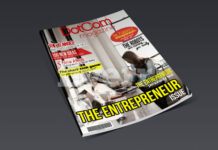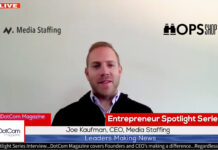Module Federation is a powerful technique in software development, particularly in the context of building modular and scalable applications using JavaScript frameworks like webpack. It enables developers to break down large applications into smaller, independently deployable modules that can be loaded dynamically at runtime. Here are ten important aspects to understand about Module Federation:
Definition and Concept: Module Federation is a concept in software development that enables the dynamic loading and sharing of JavaScript modules between different applications at runtime. It allows developers to build modular, scalable, and interoperable applications by breaking them down into smaller, self-contained modules that can be independently developed, deployed, and updated. Module Federation facilitates the creation of complex applications composed of loosely coupled modules that can communicate and interact with each other seamlessly.
Webpack and Microfrontend Architecture: Module Federation is closely associated with webpack, a popular module bundler for JavaScript applications. With webpack’s support for Module Federation, developers can implement microfrontend architecture, where large applications are decomposed into smaller, self-contained frontend modules. These modules can be developed and deployed independently, enabling teams to work on different parts of the application in isolation and promoting code reuse and maintainability.
Dynamic Module Loading: One of the key features of Module Federation is the ability to dynamically load JavaScript modules at runtime. This means that modules can be loaded on-demand as needed, rather than being included in the initial bundle of the application. Dynamic module loading enables more efficient use of network resources and improves application performance by reducing the initial load time and allowing for faster updates and iterations.
Sharing Modules Between Applications: Module Federation enables applications to share JavaScript modules with each other, even if they are deployed separately. This means that modules can be reused across multiple applications without duplication, reducing code redundancy and maintenance overhead. By sharing modules, developers can ensure consistency and coherence across different parts of the application ecosystem and facilitate collaboration between teams working on different projects.
Versioning and Dependency Management: Module Federation supports versioning and dependency management for shared modules, allowing applications to specify the versions of modules they depend on and ensuring compatibility between different versions of the same module. This enables applications to evolve independently and facilitates smooth upgrades and migrations without breaking existing functionality. Versioning and dependency management are essential for maintaining the stability and integrity of the application ecosystem.
Communication Between Modules: Module Federation provides mechanisms for modules to communicate and interact with each other, even if they are hosted in different applications. This allows modules to exchange data, events, and messages in a decoupled and asynchronous manner, enabling the creation of dynamic, interconnected user experiences. Communication between modules is typically achieved using standardized protocols and APIs, such as custom events, pub/sub patterns, or remote procedure calls.
Security and Isolation: Security is a critical consideration in Module Federation, especially when sharing modules between applications deployed in different environments or controlled by different teams. Module Federation provides mechanisms for enforcing security boundaries and isolating modules from each other to prevent unauthorized access or tampering. This includes techniques such as sandboxing, access control, and data validation to ensure that modules operate within their intended scope and do not pose security risks to the application ecosystem.
Performance Optimization: Module Federation offers opportunities for performance optimization by enabling applications to load only the modules they need, when they need them. This can reduce the initial load time of the application and improve overall performance by minimizing the amount of code that needs to be downloaded and executed. Additionally, Module Federation supports techniques such as code splitting, lazy loading, and caching to further optimize resource utilization and enhance the user experience.
Cross-Origin Module Loading: Module Federation supports cross-origin module loading, allowing applications to load modules from different origins or domains. This enables the creation of distributed, decentralized application architectures where modules can be hosted and served from different locations, such as content delivery networks (CDNs), cloud storage, or third-party services. Cross-origin module loading enhances scalability, resilience, and flexibility by decoupling the deployment and distribution of modules from the application runtime environment.
Community and Ecosystem: Module Federation has gained popularity and momentum within the JavaScript community, with many developers and organizations adopting it to build modern, modular applications. The webpack community provides extensive documentation, tutorials, and resources for getting started with Module Federation, as well as ongoing support and updates to the webpack ecosystem. Additionally, there is a growing ecosystem of tools, libraries, and frameworks that integrate with Module Federation, enabling developers to leverage its capabilities in a wide range of use cases and scenarios.
Module Federation represents a fundamental shift in how developers architect and build JavaScript applications, enabling the creation of modular, scalable, and interoperable software systems. By leveraging webpack’s support for dynamic module loading and sharing, developers can implement microfrontend architectures that break down large applications into smaller, independently deployable modules. This modular approach promotes code reuse, maintainability, and collaboration across development teams, allowing them to work on different parts of the application in isolation. Moreover, Module Federation facilitates versioning and dependency management for shared modules, ensuring compatibility and consistency across different versions of the same module used in multiple applications.
Communication between modules is a core feature of Module Federation, enabling modules hosted in different applications to exchange data, events, and messages seamlessly. This communication is essential for creating dynamic, interconnected user experiences where modules can interact with each other in a decoupled and asynchronous manner. Security and isolation mechanisms are critical considerations in Module Federation to prevent unauthorized access or tampering with shared modules. Techniques such as sandboxing and access control help enforce security boundaries and ensure that modules operate within their intended scope without posing security risks to the application ecosystem.
Performance optimization is another key aspect of Module Federation, allowing applications to load only the modules they need, when they need them. This can significantly reduce the initial load time of the application and improve overall performance by minimizing the amount of code that needs to be downloaded and executed. Additionally, Module Federation supports cross-origin module loading, enabling applications to load modules from different origins or domains. This distributed approach enhances scalability, resilience, and flexibility by decoupling the deployment and distribution of modules from the application runtime environment.
The adoption of Module Federation is growing within the JavaScript community, driven by its ability to address the challenges of building complex, modular applications. The webpack community provides extensive documentation, tutorials, and resources for developers to get started with Module Federation, along with ongoing support and updates to the webpack ecosystem. Furthermore, there is a thriving ecosystem of tools, libraries, and frameworks that integrate with Module Federation, enabling developers to leverage its capabilities in a wide range of use cases and scenarios. As Module Federation continues to evolve, it is poised to play a significant role in shaping the future of JavaScript application development, empowering developers to build modular, scalable, and interoperable software systems.

















